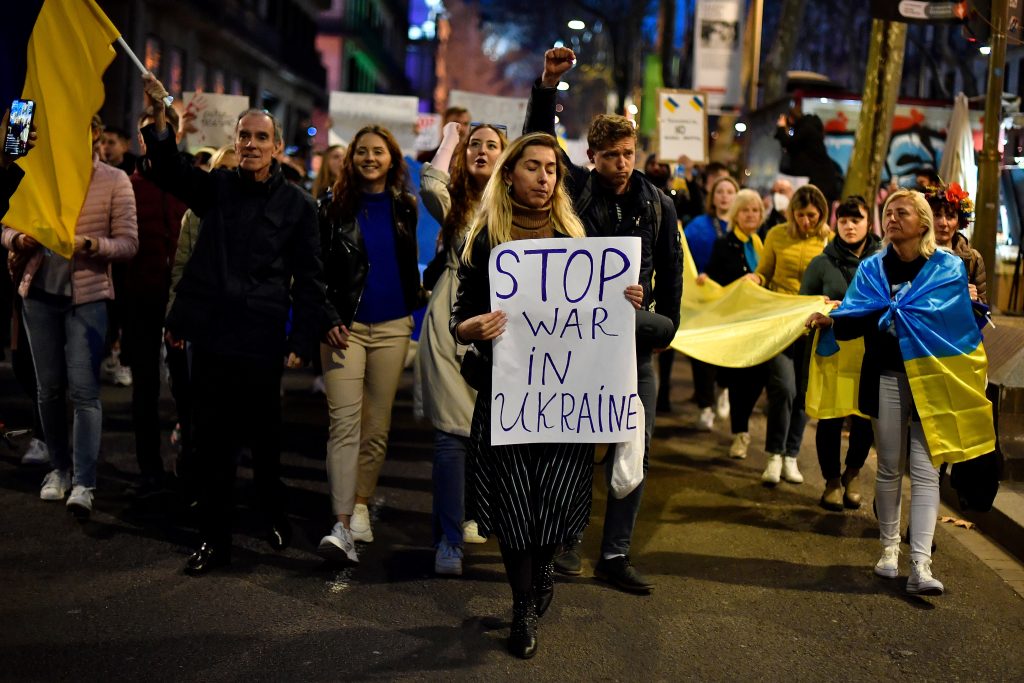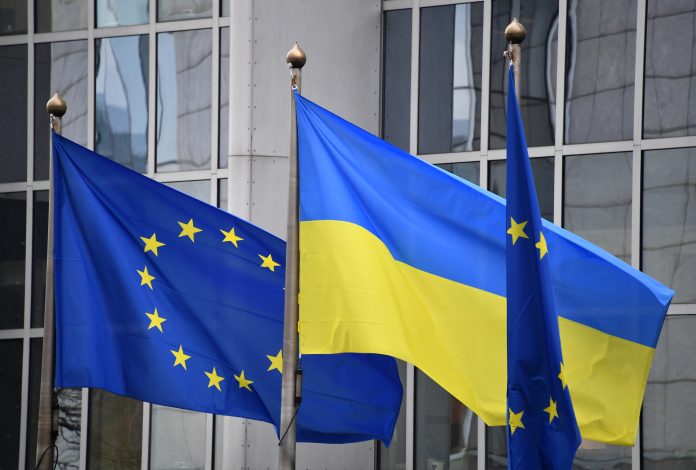The EU’s leaders accused Russia of “geopolitical terrorism” Tuesday over its invasion of Ukraine, warning that it is not just Kyiv’s fate but also Europe’s that “lies in the balance.”
The strident tone in speeches at the European Parliament underlined the European Union’s transformation over the past week from lumbering talk shop into a quick-footed powerhouse.
In a video address to the meeting, Ukrainian President Volodymyr Zelensky expressed gratitude for the unprecedented measures Brussels has deployed against Russia and in support of his armed forces, including the funding of arms deliveries.
“Without you, Ukraine is going to be alone. We have proven our strength. We have proven that, at a minimum, we are exactly the same as you are,” Zelensky said from Kyiv.
“Prove you are with us, do prove that you will not let us go.”
The EU’s two top officials, European Council President Charles Michel and European Commission President Ursula von der Leyen, expressed full backing.
“It’s not only Ukraine that is under attack,” Michel said.
“International law, the rules-based international order, democracy, human dignity are also under attack. This is geopolitical terrorism, pure and simple,” he said.
Von der Leyen called it “a moment of truth for Europe.”
“The destiny of Ukraine is at stake, but our own fate also lies in the balance,” she said.
As part of the EU’s response, she said, Brussels would provide 500 million euros (US$560 million) in extra funding to help deal with the “humanitarian consequences” of the war, including the flow of refugees into the bloc.
Michel and von der Leyen underlined the measures the EU has already taken in coordination with the US, Britain, Canada and Japan.
They include sanctions that are causing Russia’s economy to buckle, for example banning transactions with its central bank, targeting President Vladimir Putin and some of his top ministers and aides as well as oligarchs propping up his rule.
There is also a prohibition on Russian flights in EU airspace and a ban on state-linked Russian media organisations broadcasting into the bloc.
The European Union is poised to publish a list of Russian banks it is to cut out of the global SWIFT interbank network.
The EU has also dropped a taboo by opening a fund — the European Peace Facility — to pay for the delivery of arms from EU member states to Ukraine, to the tune of 450 million euros.
The steps taken are harder hitting and came faster than many — including EU officials and leaders — ever thought possible.
“Our European response was on display over the last, very painful days. This must be our ‘whatever it takes’ moment,” Michel said.

‘Fighting for survival’
But not all of Ukraine’s wish list is being fulfilled, notably Zelensky’s plea for his country to be given “immediate” EU membership.
“We’re fighting for survival. And this is the highest of all motivations. But we are asking also to be equal members of Europe,” he said.
EU officials, while sympathetic, say there is no short-cut path for membership and any accession process would take years.
EU countries in NATO are also shying away from Ukrainian demands for a no-fly zone to prevent Russian warplanes decimating Ukrainian forces and population centres.
That would essentially mean a threat against the world’s largest nuclear power, risking an escalatory response that could devastate Europe, or the world.
“NATO is not going to be part of the conflict. So NATO is not going to send troops into Ukraine or move planes into Ukrainian airspace,” NATO chief Jens Stoltenberg said on Tuesday in Poland, during a visit to an alliance airbase.
The EU is conscious of potential blowback if it sends troops, not least because Russia accounts for around a third of its natural gas supplies.
Michel said that “protecting our liberty comes at a price”.
He warned the European public that, at a time of recovery from the coronavirus pandemic and spiking inflation, the consequences would bite.









